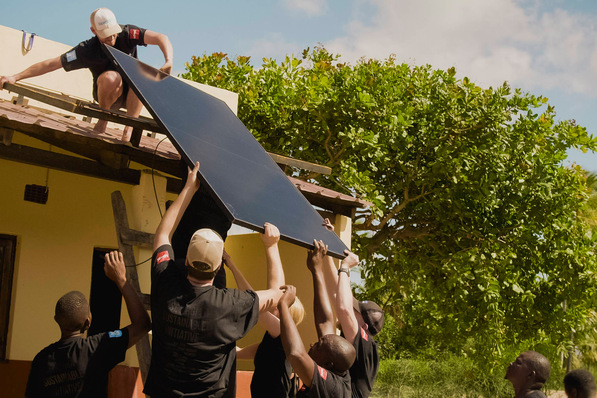The Solar Energy Research Institute of Singapore (SERIS) at the National University of Singapore (NUS) has embarked on a two phase study of the economic and technological feasibility of deploying large scale floating PV systems on inland water bodies.
Best performing systems tested in Phase 2
In the first phase, the one-hectare test- bed at Tengeh Reservoir will be used to examine ten different types of floating structures and PV modules, each with a capacity of about 100 kW. After a six-month evaluation period, the two best-performing systems will progress to Phase 2 in 2017, where the respective contenders will be required to build one MW of each design.
Good previous experiences
In 2013 already, Phoenix Solar installed the first floating photovoltaic (PV) system in Southeast Asia. The five kW pilot project was designed to study the environmental impact on water quality, flora and fauna, and to quantify a number of anticipated benefits. The water cooling effect should improve solar cell efficiency. By covering expanses of water, the floating PV should reduce evaporation of valuable fresh water. Restricted penetration of sunlight in the water bodies should impede the growth of undesirable algae.
Designed for easy mounting
The successful evaluation of this project gained Phoenix Solar a grant to participate in the current comparative array. "Our experience in floating solar may give us an advantage over our contenders. The power raft we launched now is designed for easy mounting, high energy yield and durability", explained Eric Fleckten, General Manager of Phoenix Solar Pte Ltd. "Together with our reputation for building high quality PV systems on time and on budget, a successful participation in this test will strengthen our opportunities for sustainable growth in the Asia/Pacific region." (HCN)
Related news:
https://www.pveurope.eu/planning/phoenix-solar-and-meteocontrol-establish-alliance-menat-region







